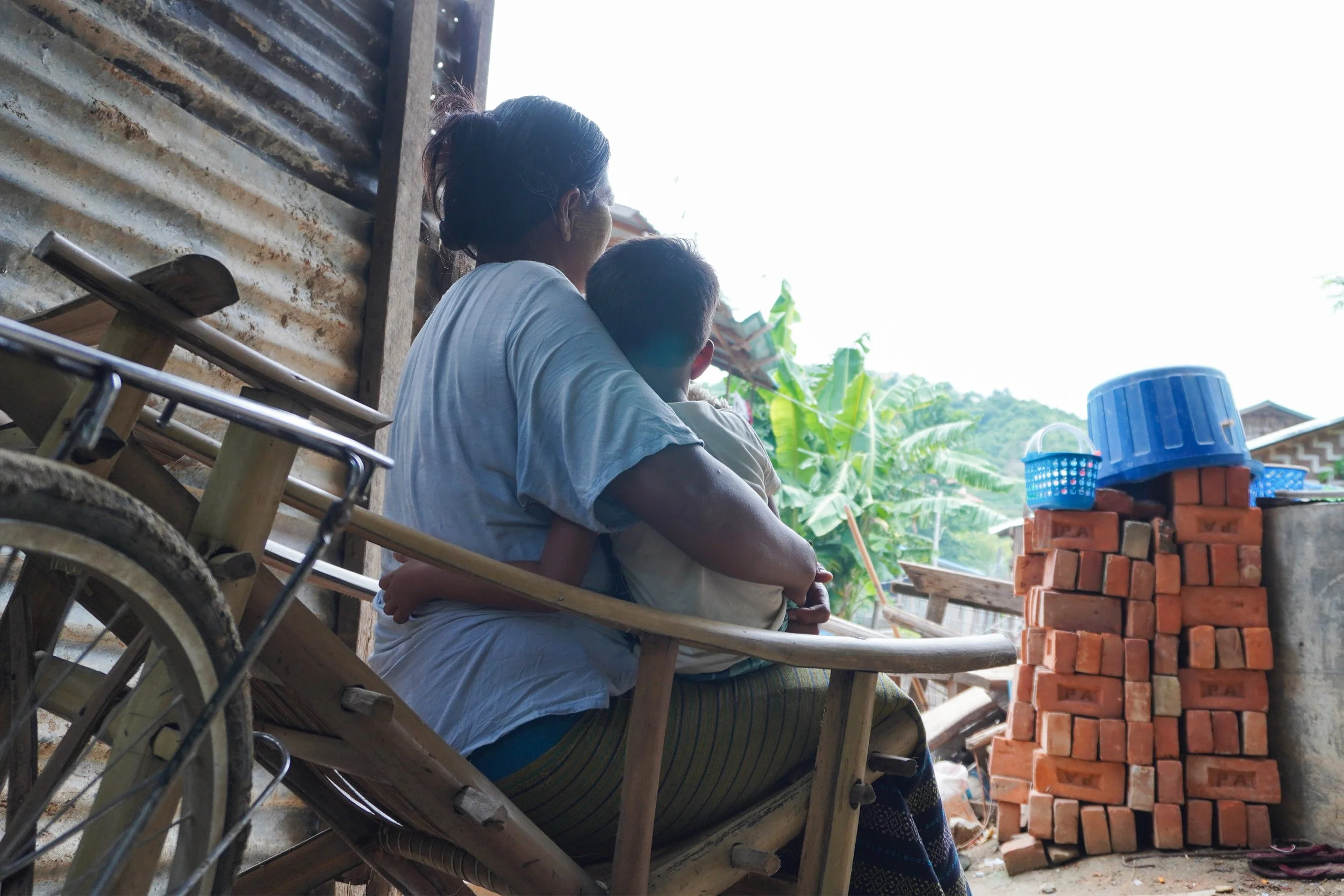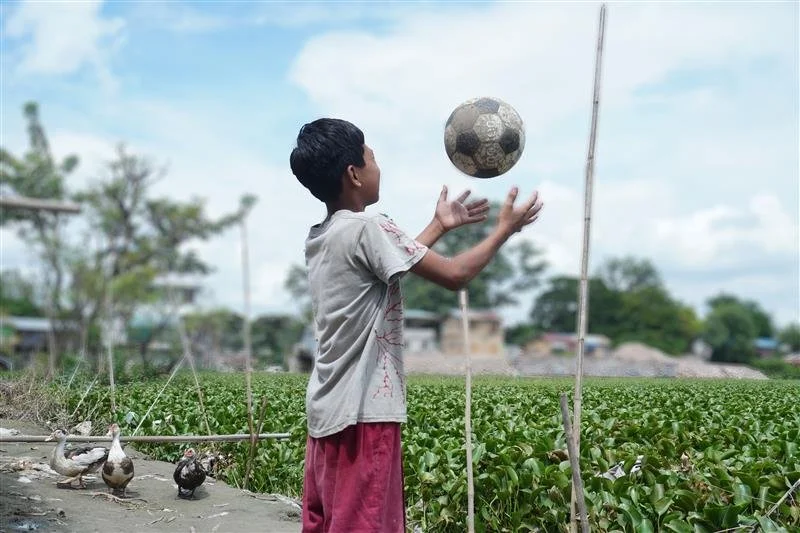Education in Emergencies - Myanmar
Above: Temporary Learning Centres mean children like Showkat* (pictured here with her mother) now have access to education. Image: Shin Thander, LWF.
Myanmar is one of the poorest countries in the region and faces substantial humanitarian challenges, with large numbers of displaced people and significant humanitarian needs.
Some 150,000 internally displaced persons (IDPs) are living in Central Rakhine State, approximately 20 percent of whom are school-aged children but are not accessing a formal education. A further 228,000 people are identified as non-displaced stateless populations, representing an approximate 45,600 additional children who face challenges accessing education.
In 2020, the Australian Government launched the Myanmar Humanitarian Package in response to the ongoing humanitarian crisis, complementing Australia’s Rohingya and Host Community Humanitarian Package (2020-2022) for Bangladesh.
The Myanmar humanitarian package included a AUD 5 million Myanmar Education in Emergencies component to be implemented through the Australian Humanitarian Partnership (AHP).
The AHP Response
Between June 2020 and March 2023, the AHP Myanmar Education in Emergencies Response reached more than 22,000 people, including more than 14,900 children living in IDP camps in Central Rakhine State (Sittwe and Pauktaw). AHP partners provided primary education to displaced children and worked to improve the overall quality of education within the IDP camps through professional development for teachers and school community engagement. Ensuring girls, children with disabilities and adolescents were included in education activities was a specific focus.
AHP partners involved in the response included Save the Children Australia, Plan International Australia, Lutheran World Federation and Humanity and Inclusion. The AHP consortium also linked with Muslim Aid to ensure all agencies focussing on education were working toward the same outcomes.
The response adapted to meet the changing conditions in Myanmar as a result of the COVID-19 pandemic, and the 2021 military coup.
Response Highlights
AHP partners adapted programming to promote awareness and prevention of COVID-19 whilst maintaining continuity of education for children in Sittwe and Pauktaw IDP camps through a home-based learning model, where groups of 5-6 children were visited by volunteer teachers to allow literacy, numeracy and social development to continue during pandemic movement restrictions.
Girls’ Clubs were implemented in communities where girls' and women’s rights to education were not being realised. Girls’ Clubs supported the inclusion of girls in education, fostered decision-making power, increased girls’ protection, and worked to mitigate gender-based harassment and violence. 61 Girls’ Clubs were established in each IDP camp in Sittwe and Pauktaw, with a total of 1,806 girls aged 9-16 participating in activities.
The employment of 25 female assistant teachers in partner communities demonstrated that women could do more than household chores and child rearing, while also increasing the presence of women in the classroom. The assistant teachers acted as role models for female students and and supported students with disabilities, while being connected to a Female Teacher Peer Network (FTPN) where they could undertake continuous professional development.
Cash distributions increased access to education among targeted families, by helping them afford school fees, transport and other supplies. A post-distribution survey showed that 98% of respondents reported using the cash support for school fees. Reducing the financial strain of schooling also changed parents’ attitudes towards education and improved IDP attendance at government schools. 228 girls gained access to secondary schooling through the cash distribution program.
Learning and Wellbeing in Emergencies (LWiE) reading clubs improved children’s reading and emotional well-being. A total of 24 reading clubs with 4,219 children (2,007 girls; 2,212 boys) were formed in Sittwe and Pauktaw. The clubs were led by volunteer classroom teachers from temporary learning centres. In these clubs, partner communities promoted literacy and numeracy skills of primary students through weekly sessions for both children and caregivers.
99% of teachers who accessed professional development sessions through the activation reported using their new skills in the classroom, including using student-centred and play-based learning practices.












Increasing the number of girls and women in the classroom, both among students and as teachers, has been one of the aims of the AHP Education in Emergencies response in Myanmar. 19-year-old Yamin Khin now has the opportunity to work as an Assistant Volunteer Teacher at the same learning centre where she studied.